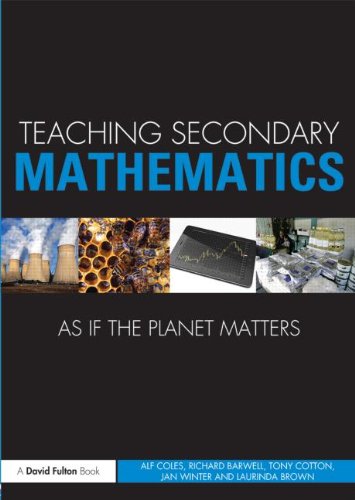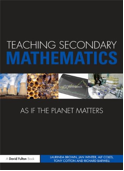Or search by topic
Number and algebra
Geometry and measure
Probability and statistics
Working mathematically
Advanced mathematics
For younger learners
Teaching Mathematics as If the Planet Matters
by Alf Coles, Richard Barwell, Tony Cotton, Jan Winter, Laurinda Brown
 We feel passionately there are global issues threatening human life. We feel action is needed and that such issues need to be addressed in classrooms.
We feel passionately there are global issues threatening human life. We feel action is needed and that such issues need to be addressed in classrooms.
However, we take a critical stance both to our own ideas and the ideas of others.
In a classroom we hope to raise issues/questions and support exploration of them using mathematics. We do not want to determine what conclusions students draw nor what actions they take next.
We are at pains not to paint too bleak a picture and want to offer examples and activities that show action is possible, that positive change can take place.
We take the stance of a “critical mathematics education” (Skovsmose, 1994), which takes as a starting point that:
• We live in a technological society.
• Information technology involves a lot of mathematics.
• The mathematics embedded in information technology has tangible social effects.
In summary, mathematics does not simply describe the world, it changes it. This is the formatting power of mathematics (Barwell, 2013). A critical mathematics education tries to uncover the role of mathematics in shaping the current crises.
We have taken some global issues and tried to bring to light the role of mathematics.
Chapter 3: Climate Change
by Richard Barwell
We have also taken some curriculum starting points and designed activities for the classroom:
Minimal Connectors (KS4-5)
Waste and Recycling (KS3-5)
Biodiversity Task (KS2-4)
Population decline and growth (KS2-3)
---------------
Alf's presentation to teachers in Cambridge, together with Sheffield temperature data

The book can be purchased here.

